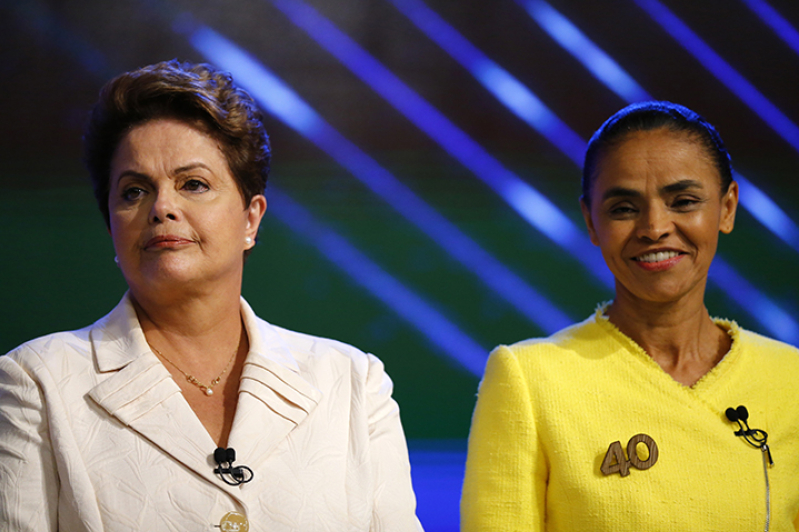
Brazilians went to the polls on Sunday to cast their ballot for president. While the incumbent Dilma Rousseff grabbed many of their votes, it was not enough to avoid a second round of elections.
The election runoff, which will happen on Oct. 26, 2014, was the result of a volatile and unpredictable election campaign in Brazil that included wide election swings and a plane crash in August that killed a presidential candidate. While both candidates have rejection numbers, based on the 94 percent of the vote counted, the leftist Rousseff gathered the most votes at 41 percent, followed by the pro-business candidate Aecio Neves at 34 percent.
"Incumbents with more than 40 percent rejection struggle to get re-elected, and she is at 43 percent," Ricardo Guedes of local polling firm Sensus said to Reuters.
Rousseff and Aceves are both candidates from Brazil's two most powerful parties, the Workers' Party and Social Democracy Party, or PSDB, respectively. These parties, according to an Associated Press article posted on ABC News, have produced all of Brazil's presidents the last 20 years and are well known to Brazilians.
Rousseff ran on campaign promises to expand social programs to help the poor and continue strong state involvement in Brazil's economy. In contrast, Neves, who comes from a family with deep political lineage in Brazil, wants to take more centrist economic approaches and implement pro-business policies.
Neves, who had largely been written off during the election campaign, enjoyed a sudden surge in support last week. He overtook the third-place finisher, former environment minister Marina Silva, who was the initial front-runner in this election cycle but ended up getting 21 percent of Sunday's vote.
"Aecio's performance has been extraordinary, and one of the reasons for this is the very strong party structure behind him - a party with a strong nationwide presence and which has been in the presidency," Carlos Pereira, a political analyst at a leading Brazilian think tank said. "It is now a new election where everything is wide open. Aecio, who until recently no one believed had a chance, has emerged as a very strong candidate."
According to a Wall Street Journal article, Neves ran a tough campaign to convince anti-Rousseff voters that he was better poised to unseat the incumbent than Silva. Now he has appealed to Silva's supporters to back his candidacy too.
"This is no longer the project of a political party, but a project for all who want to see the country grow," Neves said in televised remarks.
According to a Reuters article, Silva initially looked like she would win the election in a runoff thanks to her high ratings in opinion polls. However, while her support crumbled near the end amid questions about her constantly changing views on major issues, an endorsement by her could help swing the election.
Brazilians' relationship with their economy may also play a role in influencing the runoff outcome. While Brazil's economy had grown by 7.5 percent just four years ago, it has now slipped into recession and faces rising inflation.







